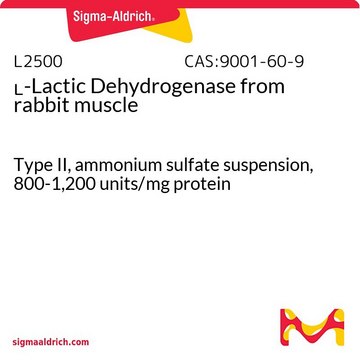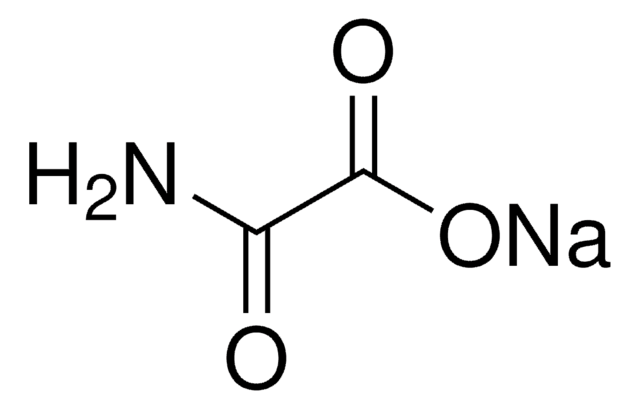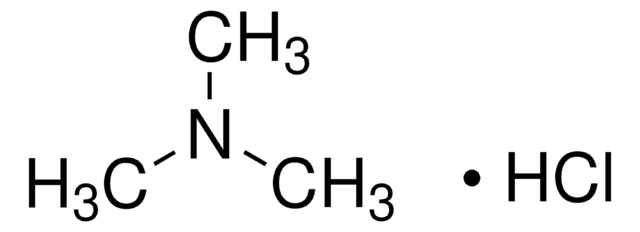M0505
Methylamine hydrochloride
≥98%
Sinónimos:
Methanaminium chloride, Methylamine monohydrochloride, Methylammonium chloride, Monomethylammonium chloride
About This Item
Productos recomendados
Nivel de calidad
Ensayo
≥98%
Formulario
powder or crystals
bp
225-230 °C/15 mmHg (lit.)
mp
231-233 °C (lit.)
solubilidad
H2O: 1 g in 10 mL, clear, colorless
cadena SMILES
Cl[H].CN
InChI
1S/CH5N.ClH/c1-2;/h2H2,1H3;1H
Clave InChI
NQMRYBIKMRVZLB-UHFFFAOYSA-N
¿Está buscando productos similares? Visita Guía de comparación de productos
Descripción general
Aplicación
- Betahistine via aza-Michael reaction with 2-vinylpyridine in water.
- Azatripyrrolic and azatetrapyrrolic macrocycles by reacting with pyrrole and formaldehyde via base-catalyzed Mannich reaction.
- Tetrahydropyridines via Aza-Diels–Alder reaction with dienes and aldehydes.
- N-methylsecondary arylamines from aryl chlorides via nickel-catalyzed amination reaction.
Producto relacionado
Palabra de señalización
Warning
Frases de peligro
Consejos de prudencia
Clasificaciones de peligro
Acute Tox. 4 Oral
Código de clase de almacenamiento
11 - Combustible Solids
Clase de riesgo para el agua (WGK)
WGK 1
Punto de inflamabilidad (°F)
408.7 °F - closed cup
Punto de inflamabilidad (°C)
209.3 °C - closed cup
Equipo de protección personal
dust mask type N95 (US), Eyeshields, Gloves
Elija entre una de las versiones más recientes:
¿Ya tiene este producto?
Encuentre la documentación para los productos que ha comprado recientemente en la Biblioteca de documentos.
Los clientes también vieron
Nuestro equipo de científicos tiene experiencia en todas las áreas de investigación: Ciencias de la vida, Ciencia de los materiales, Síntesis química, Cromatografía, Analítica y muchas otras.
Póngase en contacto con el Servicio técnico







